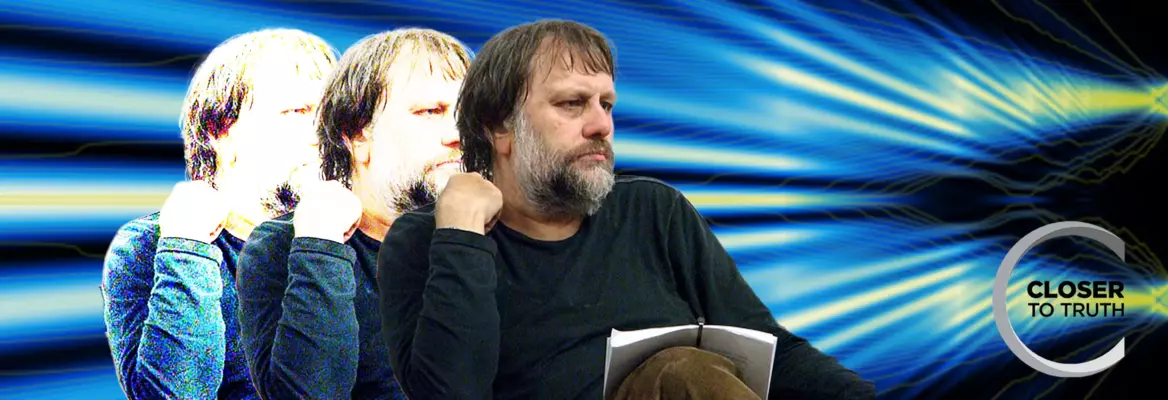Despite being our most successful scientific theory, quantum mechanics raises deep ontological questions about the nature of reality—questions that bring philosophy back to the forefront of our quest to understand the universe. Slavoj Žižek argues that we should take it’s philosophical consequences seriously, we should see reality as incomplete.
On September 21st, at the HowTheLightGetsIn festival in London’s Kenwood House, Zizek will be on a panel alongside Nobel laureate and mathematical physicist Roger Penrose, and theoretical physicist and YouTube sensation Sabine Hossenfelder, to debate the philosophical implications of quantum mechanics. Book your place now.
This article is presented in association with Closer To Truth, a partner for HowTheLightGetsIn Festival 2024.
In Žižek's most recent book Christian Atheism: How to Be a Real Materialist, he addresses the relationship between quantum mechanics and film, using Everything Everywhere All at Once as a metaphor for quantum superposition and the randomness of reality. However, Žižek sees this cinematic portrayal as a negative example, warning against the misuse of complex scientific topics in popular culture.
“Two points I’ll try to be as brief as possible. First, I will begin with my usual paradox. First, of course, I haven't seen the movie. I tried to watch for five, ten minutes… it's boring, but I saw some clips and summaries for context. I meant to use this starting metaphor as a negative example, as a warning of how topics developed in an imminently scientific way in quantum mechanics are used and predominantly misused in popular culture.
The idea of superpositions is often misrepresented as a freedom of choice, as if human subjects can simply choose which of the multiple realities to actualise. This is a total misreading. The collapse of superpositions is contingent and out of our control."
Žižek frequently criticises how pop culture misappropriates scientific concepts for metaphors that distort their true meaning. He highlights this negative example of how quantum mechanics, specifically superposition, is turned into a metaphor for human freedom:
"The idea that we can choose between realities, like selecting a cake from a menu, completely misses the point. Superposition collapse is not a matter of choice, but of uncontrollable contingency."
This critique extends to even serious science popularisers, who Žižek believes often oversimplify the implications of quantum mechanics:
"The collapse of superpositions is not like choosing a dessert. It's a process beyond human control, contingent on factors we cannot dictate."
Žižek's interest lies not in critiquing quantum physics itself but in exploring the philosophical implications it presents. He points out the paradox that, despite quantum physics being one of the most rigorously tested theories in science, it leads to wildly different philosophical interpretations.
"Quantum physics compels us to radically change our notion of objective reality," Žižek says.
He acknowledges the challenges posed by the different interpretations of quantum mechanics, from Niels Bohr's view of quantum waves as mere epistemological tools to the multiverse theory, which posits that all superpositions are realised. The differing theories on the Big Bang and the ontological status of quantum waves are of particular interest to Žižek, who marvels at the philosophical questions about realism and determinism they raise.





















Join the conversation